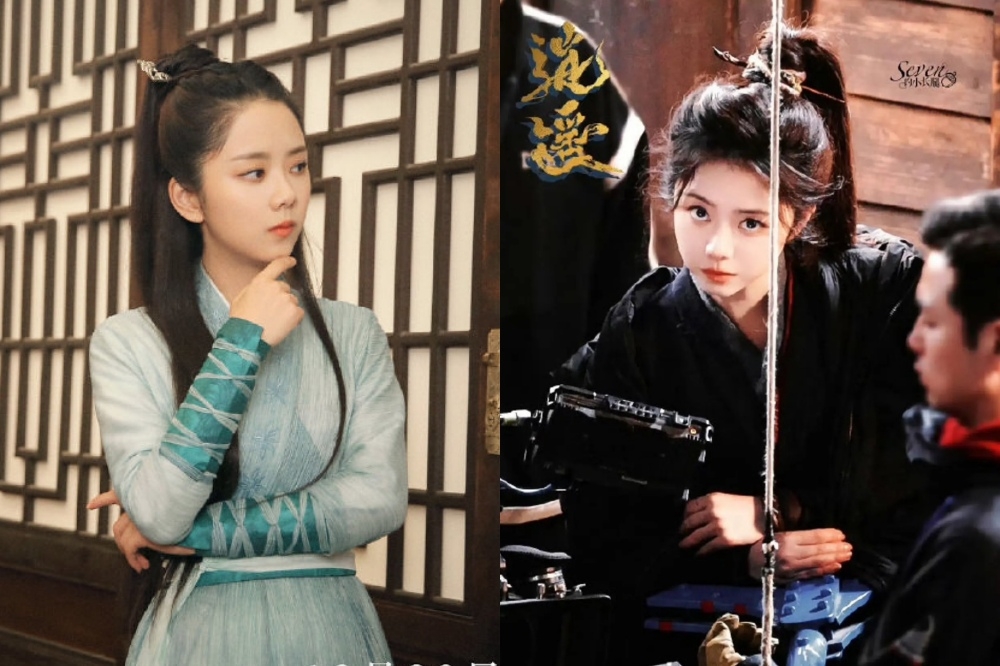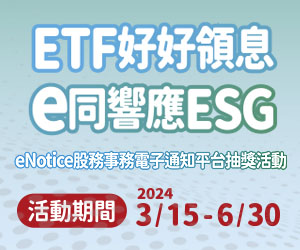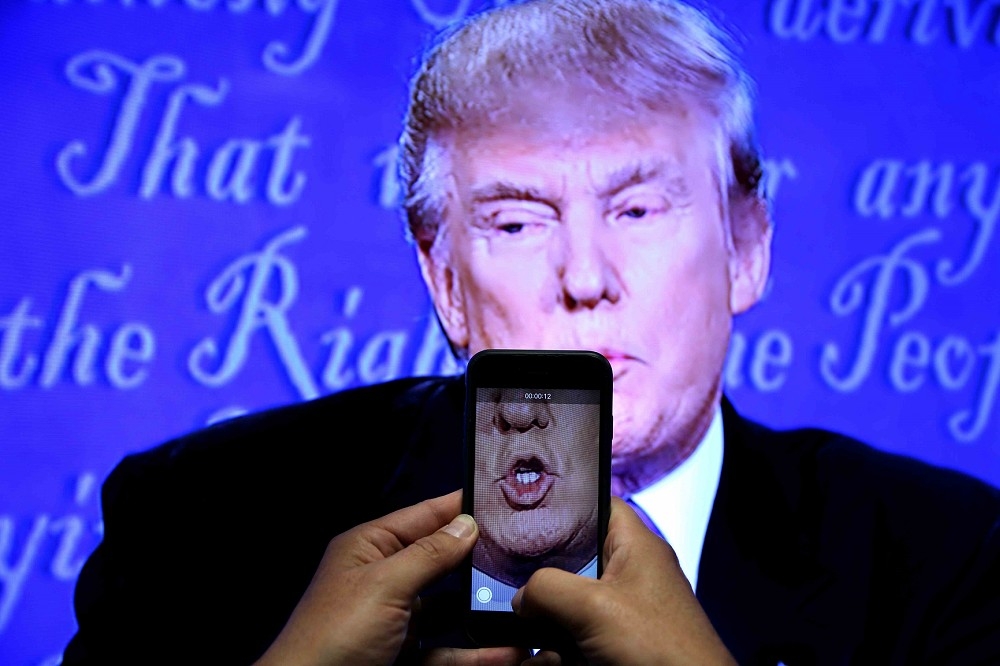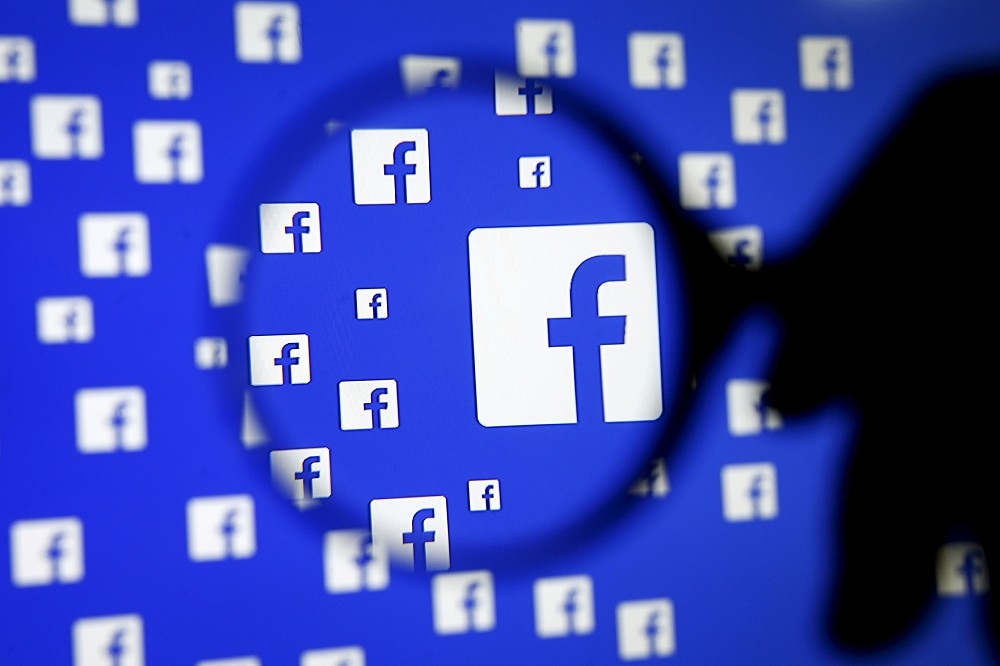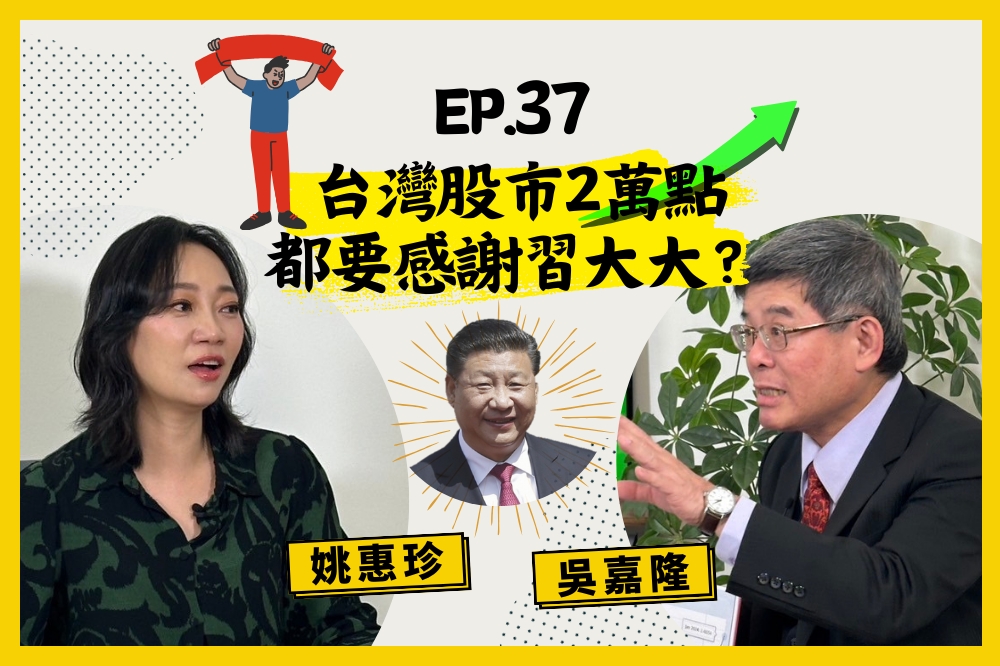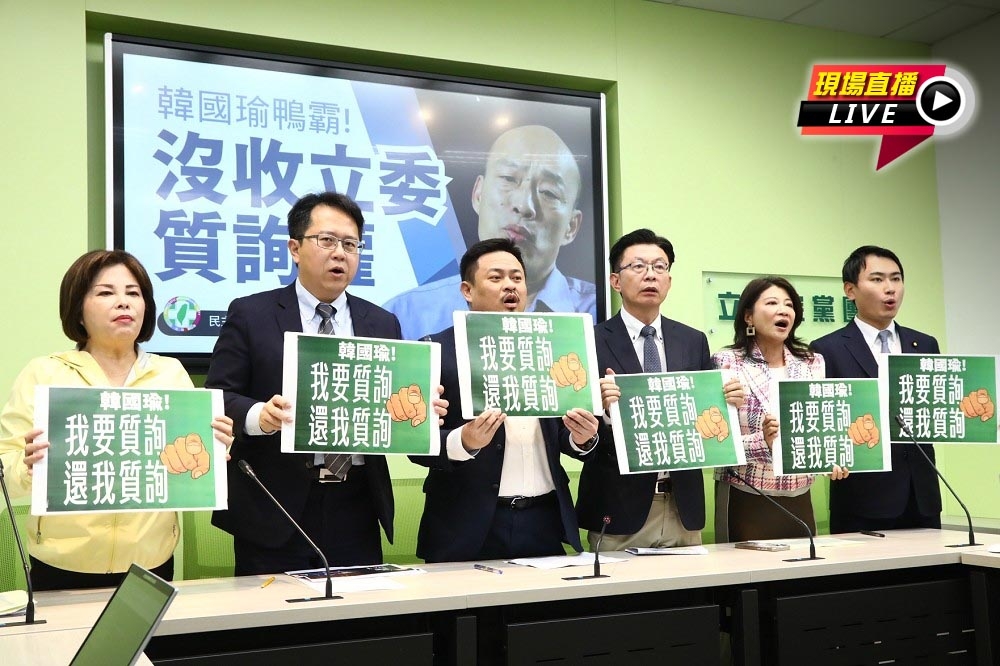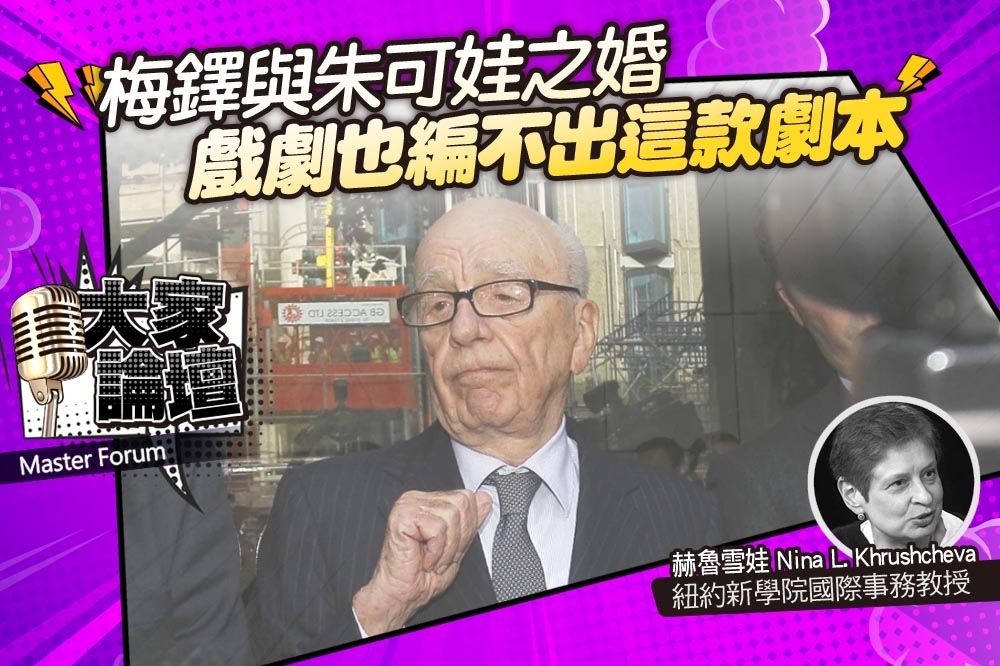上報 Up Media
toggle- 最新消息 這下嚴重了!大車撞裂福和橋 「往台北外側車道」封閉 2024-04-18 17:45
- 最新消息 【有片】華為開賣新手機主打「AI攝影」 網路商城不到1分鐘秒掃光 2024-04-18 17:40
- 最新消息 《長相思》檀健次與《偷偷藏不住》陳哲遠耽改劇畫面外流 冰封4年播出有望全網暴動 2024-04-18 17:30
- 最新消息 傅崐萁率藍委赴陸黨中央不知情? 國民黨澄清:雙方充分溝通 2024-04-18 17:20
- 最新消息 抹茶蛋撻!肯德基「宇治抹茶白玉蛋撻」這天開賣 優惠 8 折開吃 2024-04-18 17:00
- 最新消息 在校體驗街舞!基隆盃街舞大賽 讓在地學子一起跳起來 2024-04-18 16:56
- 最新消息 台大AV女優魏喬安休學中 徒步環島挺「性工作全面除罪化」 2024-04-18 16:52
- 最新消息 【有片】 德軍新型榴彈發射器標案 奧地利史泰爾GL40拿下首張歷史性訂單 2024-04-18 16:50
- 最新消息 【有片】75年來最強暴雨癱瘓杜拜機場!700航班受影響 阿聯酋航空找不到工作人員 2024-04-18 16:10
- 最新消息 【寶林茶室中毒】毒物源頭找到了? 北市警局長:有重大發現將破案 2024-04-18 16:05
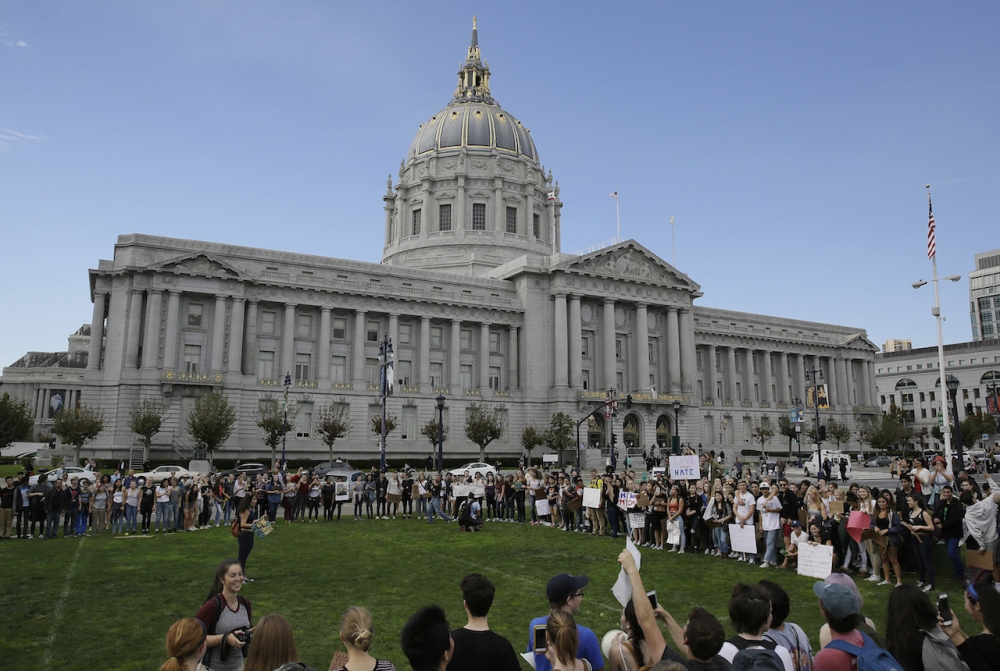
美國賓州大學教授林霨認為,華盛頓原本力主親中派的政府要員,將因川普的出線而影響力式微。(美聯社)
在美國總統大選中,唐納‧川普(Donald Trump)打敗了希拉蕊‧柯林頓(Hillary Clinton),獲得出乎意料卻決定性的勝利。台灣能否重回國際社會,成為受重視的一員,取決於台灣人如何看待此事,這是個微小卻重要的一步。
我們即將見到全新的美國決策團隊,從台北的角度而言,最重要的是,某些打從心裡盼望台灣消失,以促進美中關係的人終於步出政府,影響力也將式微。
從最近的南海局勢,可以明確看到這類人物的影響力。當海軍上將欲使出更進一步的手段,警告並約束中國時,美國總統歐巴馬(President Obama)卻下令阻止。目前,我們尚未知悉川普的國安團隊陣容,但他們恐怕無暇再公開示弱(雖然歐巴馬將自己的舉動視為追求和平的手段。)
目前已有兩列航空母艦打擊群(CSG)部署在該地區。我希望他們能展開行動:駛過中國違法宣示主權的海域,因為國際法庭已做出明確裁示。雖然部分中國人會希望攻擊這些美國艦隊,但那將是不智之舉。
如同已故的李先念(李先念是中國前國家主席)的女婿劉亞洲在《當代世界》寫道:「日本海軍叫囂,一旦發生戰事,4個小時內即可『清空』中國東海艦隊。」像劉亞洲這麼痛恨日本的人,也提醒這「不是一句笑話」,而是重要事實。若日本現在有能力做到此事,想像一下,美國兩列航空母艦打擊群對中國可能造成的攻擊,力道是何等強大!
中國自認已屬強國(中國確實比以前任何時候都強大,但仍未敢招惹日本),此一事實構成了新的地緣政治架構,並將主宰台灣的未來。
川普勝選 牽動台灣國際處境
美國新政府上台,台灣將不再是自生自滅、被孤立之地,不再被許多自由與不自由的國家聯手遺棄,同時遭美國以或大或小的方式羞辱。原因是,美國制定亞洲政策時,將不再納入極度親中的有害派系,此派系向來的主張是:「一切全看中國。北京與華盛頓遲早會成為知心好友。」這樣的想望,其實早在尼克森執政時(大約50年前)就已經開始。
我們且於1969年便看出些許端倪。當時強大的蘇聯軍隊剛在中國邊界完成部署,遍及現在蒙古南方的邊界(當時蒙古遭俄羅斯控制)。假若戰爭爆發(即珍寶島事件),蘇聯將重創中國,尤其是(當時還健在的)毛澤東與共產黨。北京最後思忖得出,與美國結為戰略同盟才是最好的選擇,強過和莫斯科重修舊好。
因此,台灣就成了一個問題,或一道阻礙,如同一位美國海軍上將(指的是退役海軍上將布雷爾(Dennis Blair),他曾任美國情報首長)曾十分粗魯地形容,台灣對於美中關係而言,就像「大碗公裡的一坨屎。」若沒有台灣,美中關係將無比順利,沒有任何問題。歷經尼克森時期,建立在這論點上的政策,就像是一具幽靈,持續發揮著影響力,直到川普的勝選確立。
美國當時以迫使台灣納入中國為最終訴求的外交手段,孤立了這座島嶼,使其無從參與重要國際議題之討論,且對她予取予求。簡單來說,台灣在亞洲所占有的重要地位因此遭到連根拔起,並被推入某種程度的外交模糊地帶(Twilight Zone)。然而在當前中國頻繁騷擾及壓抑其鄰國的情勢下,台灣勢必會再次受到牽連。
期盼川普撤銷對台限制
希望川普政府能解除諸多對於台灣不必要且帶鄙視意味的限制措施,例如不再禁止懸掛中華民國國旗;不再阻撓美國高層官員與台灣外交人員進行定期會晤或訪台(前國務卿季辛吉未曾造訪台灣。他曾告訴朋友:我得先跟北京當局討論),進而讓這類格局狹隘的不當舉措銷聲匿跡。
再者,台灣的國防議題將獲得美方更專業的看待。就連即將卸任的美國行政當局也開始擔心:過去數十年來,他們恣意地將老舊的美國軍備以高價賣給台灣,促使台灣「更加重視國防安全」,但不知何故從未考慮將戰機、潛艦、嚇阻武器等關鍵軍備賣給台灣(同時卻仰賴台灣提供有關中國的情報。)
最重要的是,川普的新政府將使台美關係開始正常化,以實事求是的態度與台灣互動,就像對待日本、南韓、印尼、印度、新加坡,或其他逐步成為亞洲新安全體系的國家一樣,也將台灣列入此行列。這是一項艱難的任務,因為我們之前已對中國做出過多使其誤判的承諾。
我們可望見到美國政府從現實主義角度看待中國、俄羅斯、台灣及諸多其他議題。川普是位商人,他不做不切實際的美夢,也可以敏銳覺察出包裝在甜言蜜語中的瑕疵與陷阱。當他談判協商時,會是這麼一回事:你給,我就給,當雙方達成協議,不會有任何一方違約。就像川普過去冷眼評估待售建築的實際價值,當他觸及國際政治,「氛圍」與「善意」將不如以往管用。
美國近期最可能遭遇到的挑戰,包括韓國、南海、香港及台灣議題,而首先川普派出訪問前述國家的官員,會是國務卿?抑或是國防部長?尤為觀察指標。惟倘若川普派出的是「前政府高層」之類的重量級人物出馬,那麼,我前述樂觀的看法就必須有所保留。
中國並不想疏遠川普
美國政府過去一向有一派主張積極爭取中國的友誼;另一派則認為,在為時已晚之前,必須警告並威嚇奉行新軍國主義的中國。可以預見,這長久以來的政治僵局應可告落幕,中國欲成為亞洲霸權的美夢亦將被喚醒。川普的新外交政策或將從任命一位對中國不抱有錯誤幻想的強勢國務卿開始。國務院的前朝官員,乃至其他由親中派主導的單位,便將很快得捲舖蓋走人。
然而,我們必然詫異,中國何以會故作震怒卻又接受這一切,因為他們並不想疏遠川普。畢竟他們也是現實主義者,只是他們也會不斷試探,自己可以僥倖得利到何種程度。
此外,對於台灣這個擁有高教育水準、貧窮率遠低於美國的成功民主國家,要重回世界舞台,尚需下列幾項條件:中國出乎意料地持默許的態度,准予美國將台灣納入更強大的區域安全體系;中國至少仍迫切需要繁榮,因而確保和平的可能性更大;以及,那些仍在追求華府與北京結盟,好創造出一頭巨獸的「華府的中國夢想家」終於退出,改由追求和平與共同利益的中國現實主義者取而代之,並且不再容忍過往美中政策的欺騙與空談。
從我位於賓州大學(川普48年前從這裡畢業)的研究室向外看,前景一片看好。只有明智與現實的政策在推動著,一切穩步前進,不待奇蹟。
譯註:文中所述為劉亞洲在《當代世界》2015年10月刊撰文《從釣魚島問題看中日關係》。
※作者為美國賓州大學(University of Pennsylvania)國際關係和中國歷史學教授。曾擔任美國企業研究所亞洲研究所所長。現為美國外交關係協會的成員和自由之家的董事,本文為林霨教授提供給《上報》的專文,由《上報》國際中心記者李佳恒翻譯。
林霨專文原文如下 :
10 NOVEMBER 2016 ARTHUR WALDRON FOR UPMEDIA TAIWAN
Another in the series of small but important steps that will bring Taiwan back as a respected member of the international community—that above all is how people in Taiwan should understand the unexpected but decisive victory of Donald Trump over Hillary Clinton in yesterday’s presidential election.
We are about to see a complete change of characters in Washington. From Taipei’s point of view, most important will be the final departure from the government and from influence of those who, in their hearts, wished Taiwan would disappear somehow in order to improve United States relations with China.
The influence of such people has been clear, most recently, in the South China Sea, where the commanding Admiral wanted to do far more to warn and constrain China—but was ordered by President Obama not to. We do not yet know who will be Mr. Trump’s security team, but they will have little time for such public announcements of weakness (though Obama, not understanding, saw his actions as gestures seeking peace).
Two Carrier Strike Groups are already in the region. My expectation is that they will now start to move: sailing through waters China has illegally claimed, as the International Court made clear. Some in China will want to attack these American forces, but that would be madness.
As Liu Yazhou 流亞洲 son in law of the late 李先念 has recently written in 當代世界, hate the Japanese as he does, “the Japanese navy [as it is right now] is capable of sinking the entire Chinese East Sea Fleet in four hours.” As Liu notes, this is “not a joke” but an important fact. If that is what Japan can do now imagine what devastation two US Carrier Strike Forces could wreak!
This fact-- that although China sees herself as strong (and she is stronger than ever before though still not strong enough to take on Japan)—frames the new context that will govern Taiwan’s future.
Taiwan will no longer be a solitary and isolated place, shunned by countries free and unfree alike, humiliated by the United States in small and big ways. The reason is that American Asian policy making will no longer contain the damaging faction that counsels: “It is all about China. Sooner or later Beijing and Washington will be fast friends,” as we planned during the Nixon Administration almost fifty years ago.
The truth is dawning that in 1969, when today’s policies began, the mighty Soviet Army had just deployed along China’s borders, which in those days included the southern border of Mongolia, a state run from Moscow. Had war broken out, the USSR would have inflicted a terrible defeat, not so much on China, but as on the then still living Mao Zedong and his Party. Beijing eventually calculated that a tactical alliance with the US was the best option: better than mending fences with Moscow. Taiwan became a problem, an obstacle, as one US Admiral put it with supreme crudeness “the turd in the punchbowl” of US-China relations which without Taiwan would be smooth and problem free. Hence the Nixon diplomacy, which continued to exert influence, albeit more and more wraith-like, until Trump’s victory was clear.
This American diplomacy –which sought eventually to force Taiwan to join China--isolated the island; it closed her out of important deliberations; it took her for granted—in a few words it pulled her by the roots from her immediate Asian environment, where she has such importance, instead placing her into a kind of diplomatic Twilight Zone. Now with China actively harassing and attacking her neighbors, Taiwan must be brought into the picture once again.
I expect the Trump administration to lift a host of insulting and needless restrictions that prohibit the flying of the ROC flag, that prevent Taiwan diplomats from having regular or even any meetings with our top officials, and prevent those same officials from visiting Taipei (Mr. Kissinger has of his own accord never set foot on Taiwan. He tells friends he would “have to check first with my Beijing hosts”). The end of this pettiness is in sight.
More seriously, the defense of Taiwan will now be addressed professionally. Even the outgoing administration was beginning to worry: they urged Taiwan to “pay more attention to security” after decades of supplying random near-obsolete American equipment at high price, while somehow never considering aircraft, submarines, deterrence—the key issues (and all the time depending upon Taiwan for China intelligence).
Most importantly, the new administration will begin to normalize relations with Taiwan, a difficult task given all the plethora of misguided pledges we have made to China, treating her manner of factly, just like Japan or Korea or Indonesia or India or Singapore, or any number of other countries that are also gradually forming Asia’s new security network. Taiwan will join the club.
Now we may expect realism about China, Russia, Taiwan, and a host of other issues. Trump is a businessman. He dreams no sugarplum drams. He can detect the flaws and traps concealed in sweet sounding talk. But when he makes a deal, it is on the level: you give, I give. If we agree, neither of us violates the agreement. “Atmosphere” and “good feelings” have no more place in his way of thinking about international politics than they do in his cold-eyed assessment of the true worth of a building for sale.
The most likely immediate challenges: Korea, the South China Sea, Hong Kong, and for Taiwan in particular: who will visit first? The secretary of state or defense? If Trump chooses instead to send a worthy person who long ago held high office, then the optimism I have expressed so far should be doubted.
The deadlock will be ended in government between those who are very soft and nice with China, hoping to win friendship, and those who think newly militaristic China must be warned and deterred now before it is too late. China’s dreams of hegemony and power over Asia must be put to bed.
The new policy will most likely start with a strong secretary of state who lacks illusions. The last offices at Foggy Bottom and elsewhere held by the pro-China types, will soon be packed up as they depart.
The surprise: China will react with acceptance dusted with a bit of simulated outrage—they have no interest in alienating Mr. Trump. They are furthermore realists, though they constantly test the limits of what they can get away with.
So: a few more important steps toward rejoining the world for the impressive democracy of Taiwan, a country with a higher educational level and a far lower poverty rate than the United States. An unexpectedly acquiescent attitude from China. Stronger regional security, Taiwan included; a greater likelihood of peace and thus of the prosperity that China not least still so desperately needs. And the final exit of Washington’s China dreamers, who still chase the chimera of Beijing-Washington alliance. They will be replaced by China realists who want peace and mutual benefit, but will not stand for cheating or empty talk.
Viewed from my office at the University of Pennsylvania,, from which Mr. Trump graduated forty eight years ago, the prospects are good. No miracles, but steady progress propelled by intelligent and realistic policies.
--endit--
Arthur Waldron
Lauder Profesor of International Relations
Department of History
208 College Hall
University of Pennsylvania
【上報徵稿】
上報歡迎各界投書,來稿請寄editor@upmedia.mg,並請附上真實姓名、聯絡方式與職業身份簡介。
熱門影音
熱門新聞
- 譚松韻新戲戀上《異人之下》侯明昊 她高馬尾造型曝光重現《錦衣之下》少女模樣
- 《淚之女王》金智媛、金秀賢互飆演技收視破20% 「洪海仁墓碑」劇照瘋傳網憂BE結局
- 《蓮花樓》成毅新劇高馬尾造型曝光帥翻 憑2關鍵奪回藝名聲勢輾壓師兄任嘉倫
- 【《承歡記》內幕曝光】楊紫片酬拿2億演技卻被罵翻 許凱演霸總9千萬輕鬆入袋
- 《與鳳行》林更新公開女友惹怒CP粉 趙麗穎親上火線17字幫忙救場超暖心
- 【韓星片酬大公開】金秀賢拍《淚之女王》因「這理由」降價演出 IU身價輾壓宋慧喬
- 【潛艦國造案】主系統裝備仰賴商購 防中國打壓埋重大變數
- 肖戰新劇凝視《惜花芷》張婧儀畫面曝光甜出汁 新片與《在暴雪時分》趙今麥演兄妹超吸睛
